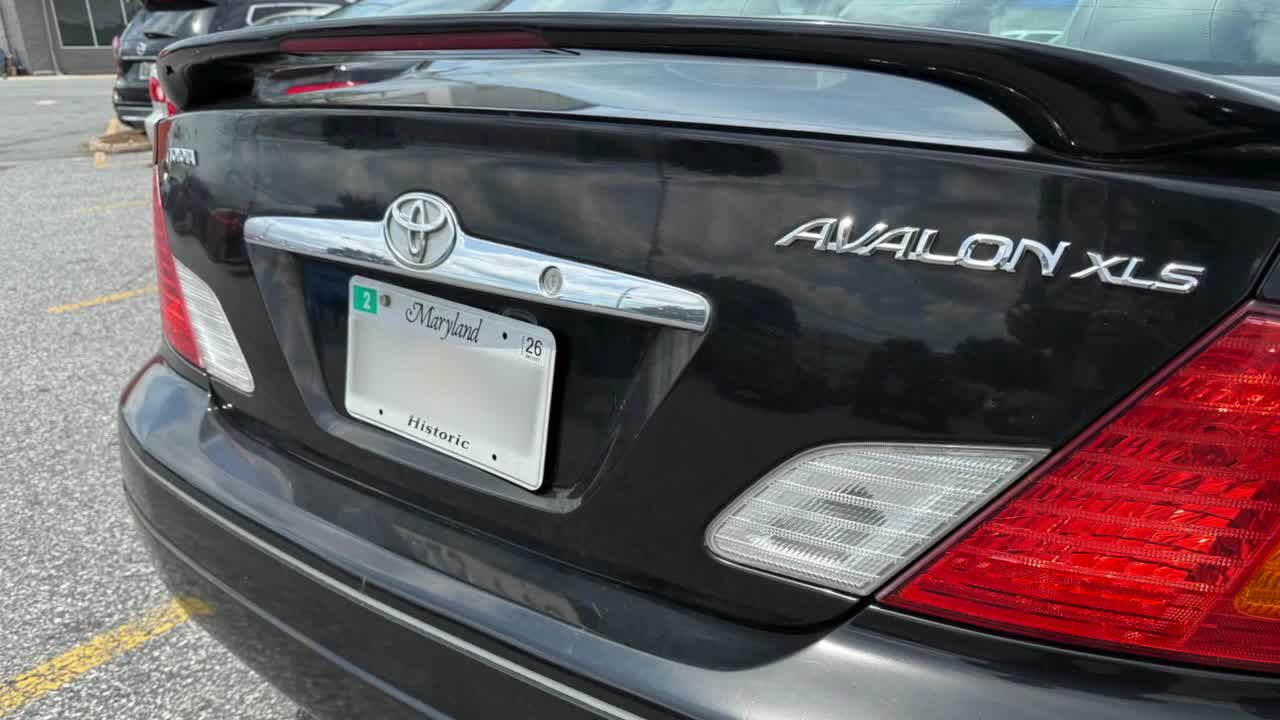BALTIMORE — Thousands of Maryland drivers must re-register their vehicles and pay higher fees after the state changed its definition of historic cars.
The change, which took effect July 1, now requires vehicles to be model year 1999 or older to qualify for the $55.50 historic tag. Previously, cars 20 years or older were eligible for the discounted registration.
Historic tags cost a fraction of regular registration fees and don't require safety inspections or emissions tests. Regular registration fees have climbed from $67.50 in 2023 to $120.50 in 2025, with some vehicles now paying between $120 to $190 depending on weight.
The change impacts more than a third of the state's nearly 200,000 historic vehicles, according to the MVA. Of the 197,968 historic vehicles with active registrations as of June 30, only 125,544 are model year 1999 or earlier.
Jacob Rubenstein owns several older cars and never considered historic registration until fees started climbing dramatically.
"Seventy percent increase in the last two years. It just makes it hard and the car that I'm registering, I drive less than 5,000 miles a year," Rubenstein said.
He tried switching to historic tags but didn't make the deadline.
"You know cars. What's the difference between the 1999 model and your 2000 model?" asked WMAR-2 News Mallory Sofastaii.
"Well, the Blazer in particular? Nothing. I think the grille might have changed. I would challenge, you know, the normal person, if you put two of them together, they wouldn't be able to tell them apart. They are the same car," said Rubenstein.
The frustration isn’t limited to drivers who missed the cutoff. After WMAR’s first story aired, dozens of viewers commented on the change with some calling it a "money grab."
"I have a 2003 Jeep I drive locally only - I converted to Historic tags in 2024 - Now I am forced to convert back & they are requiring me to get a safety Inspection - If I hadn't converted - I wouldn't have to get the inspection and I'd still be on the road," wrote Bob Desel.
RELATED: Maryland's historic vehicle crackdown impacts 72,000 registrations
The change was included in the Budget Reconciliation and Financing Act (BRFA), a massive bill to balance the state's budget.
Senator Justin Ready, a Republican representing Carroll and Frederick Counties, said the lack of public input was problematic.
"There should have been opportunity for the public to weigh in and really, unless you knew it had gotten thrown in and you watch Annapolis very, very closely, which most people can't and don't, you wouldn't have known," Ready said.
Ready warns the increased fees could drive owners to register in neighboring states where costs are lower. Virginia charges $30.75, Delaware $40, Pennsylvania $48, and Washington D.C. $72 for similar registrations.
"When you're talking about hundreds of dollars in some cases, people are going to, some people are going to go do that and the state just loses out on all that revenue," Ready said.
SEMA, the Specialty Equipment Market Association, supported the change as a common-sense approach. In an email to WMAR-2 News, a spokesperson wrote:
"The 1999 cutoff enables great cars from the 1980s and 90s to remain on the road for future generations to enjoy, while also removing some of the grey areas from the law that were not in the spirit of historical preservation."
David Turner, Director of Communications for Governor Wes Moore, wrote:
"The recent fee adjustments, including both the registration fee change and the change to the historic tag system, are part of a broader effort to invest in Maryland's aging transportation infrastructure. These changes enable Maryland to turn $400 million in new state revenue into $700 million in total improvements by unlocking additional federal funding.
This funding directly supports critical upgrades to roads, bridges, and transit systems across the state—benefiting all Marylanders, including seniors.
...
The BRFA is a companion bill to the budget and ensures that Maryland passes a balanced budget each year. The BRFA is the typical vehicle for revenue increases and all transportation revenues modified this past session were included in the BRFA. The change for historic vehicles was not in the original Governor’s package of transportation revenues. It was added to the BRFA during the legislative review of the budget. During the legislative review of the budget, multiple hearings are held on individual agency budgets, as well as decision meetings on each item in the budget and BRFA, and floor debate of the budget and BRFA package."
The fiscal note estimates this change will generate $6 million annually, a small amount compared to the state's $3.3 billion deficit.
Ready said he's considering drafting legislation next session that would remove the fixed 1999 cutoff and make it more flexible.
Drivers with historic tags who are no longer eligible can keep their current tags until they expire. At that point, they'll need to get a standard registration and a safety inspection — if there's not one already on file.
Since July 1, Baltimore City police have issued 46 historic tag warnings and 8 citations. Each citation costs $70.
The governor's office noted they're committed to easing the financial impact. Drivers can register one year at a time, enroll in a one-year payment plan, and residents over 70 or those with qualifying disabilities may request a VEIP waiver.
READ MORE: Maryland vehicle registration fees going up for the second year in a row
This story was reported on-air by a journalist and has been converted to this platform with the assistance of AI. Our editorial team verifies all reporting on all platforms for fairness and accuracy.




